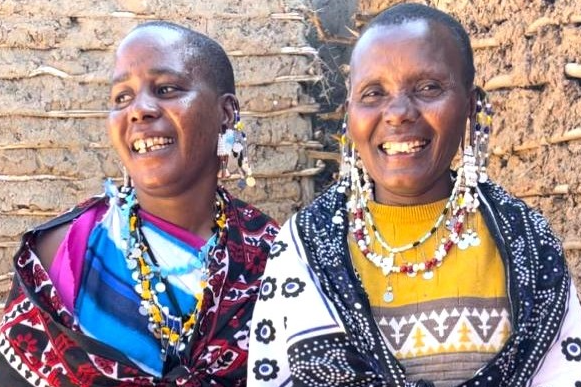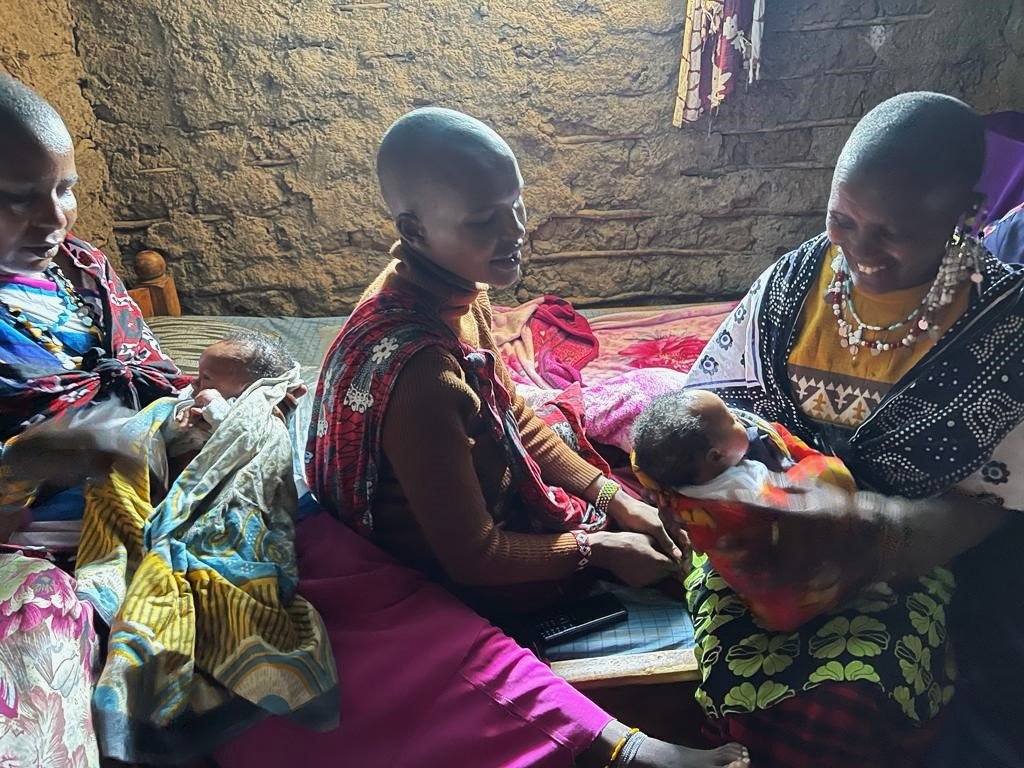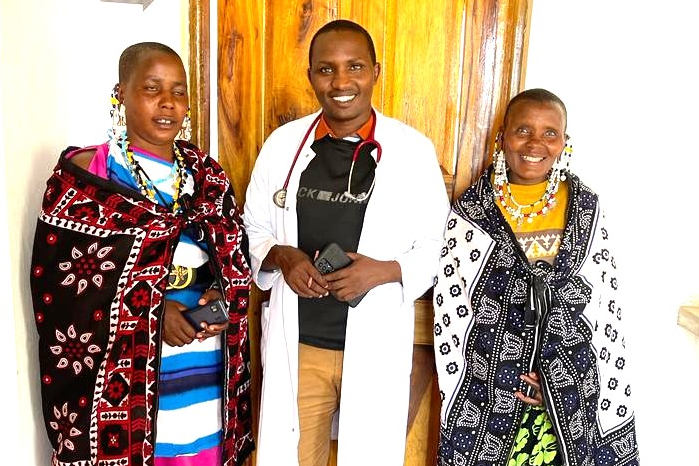Nasikare Retiti Laiza is a traditional birth attendants (TBAs) living in Piyaya village, Ngorongoro District where maternal mortality rate is high with 642 maternal deaths/100,000 live births. Home deliveries became common among women of reproductive age and only 7% of deliveries are being assisted by the skilled birth attendants at the health facilities.
Sharing her experience of being the traditional birth attendant Nasikare says “I have been assisting women and adolescent girls to deliver at home for 11 years with a lot of challenges; some women died due to severe bleeding. I didn’t know how to help.”
Christian Social Services Commission (CSSC) initiated a USAID’s Pamoja Tuwekeze Afya activity in 2021 aiming at strengthening the capacity of faith-based organization health facilities to deliver quality services including reproductive, maternal, newborn, child and adolescent health (RMNCAH) services to meet the health needs of the targeted population. Also, USAID’s PATA activity creates a linkage between the community and the health facility by engaging faith leaders, influential people in the church communities, traditional leaders and health care workers to provide health education and create demand on the utilization of reproductive maternal health services in the community.
Nasikare is among 18 traditional birth attendants identified by USAID’s PATA activity in Karatu and Ngorongoro districts in Arusha region in September 2022. The tradition birth attendants were oriented on the basics of maternal and neonatal death, reproductive and child health, antenatal and postnatal care, HIV prevention, nutrition, danger signs in pregnant women and conducting quick emergency referrals to health care facilities.
Since the training, tradition birth attendants play a vital role in bridging the gap between community and facilities particularly strengthening on antenatal services attendance and safe delivery in health facilities.
Nasikare is no longer conducting home deliveries. She is sensitizing adolescent girls and women of reproductive age in Piyaya village to utilize the reproductive and maternal services at Piyaya health facility.
“I have stopped assisting women to deliver at home instead I refer them to the health facility. I will never do it again. It’s better not to receive the gifts from my clients than losing their lives.”
Mundu Nasee,(24) a mother of three children was assisted by the traditional birth attendant to deliver her two children aging 4 and 2 years respectively. In November 2022, she experienced delivering her third child who is now 3 months at the health facility for the first time after being sensitized by Nasikare.
“Nasikare is a great mother, she has changed this community for a short period of time. All women in this community depended on her during pregnancy till delivery but nowadays, she takes all of us to the facility once you tell her you are pregnant. I personally attended the health facility when I was pregnant until delivery of my third child with her guidance. I have realized it is the best place for your safety and the newborn. I will not deliver at home or at mama Nasikare anymore.”
Yona Siloma is the clinician of Piyaya Health facility who commend the support of the traditional birth attendants in referring women to the health facility, he says “We appreciate the support of PATA activity in changing the mindset of the TBAs. They have been a good example in sensitizing the community and referring pregnant mothers to our health facility. This has increased the number of pregnant women who access antenatal services and facility deliveries.”
Traditional birth attendants have referred 36 women for antenatal and delivery services at Piyaya health facility. USAID’s PATA activity is committed to strengthen the community linkage interventions by engaging more faith leaders and influential people to improve reproductive, maternal, neonatal and child health provided by faith-based organization health facility in the regions of Arusha, Morogoro and Mwanza.



